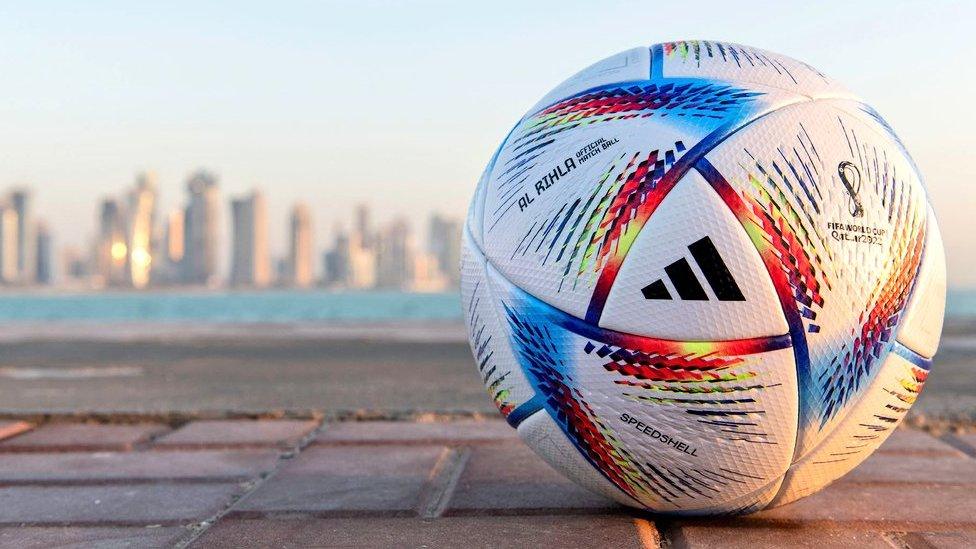World Cup 2022: Why are people talking about the OneLove armband?
- Published
- comments
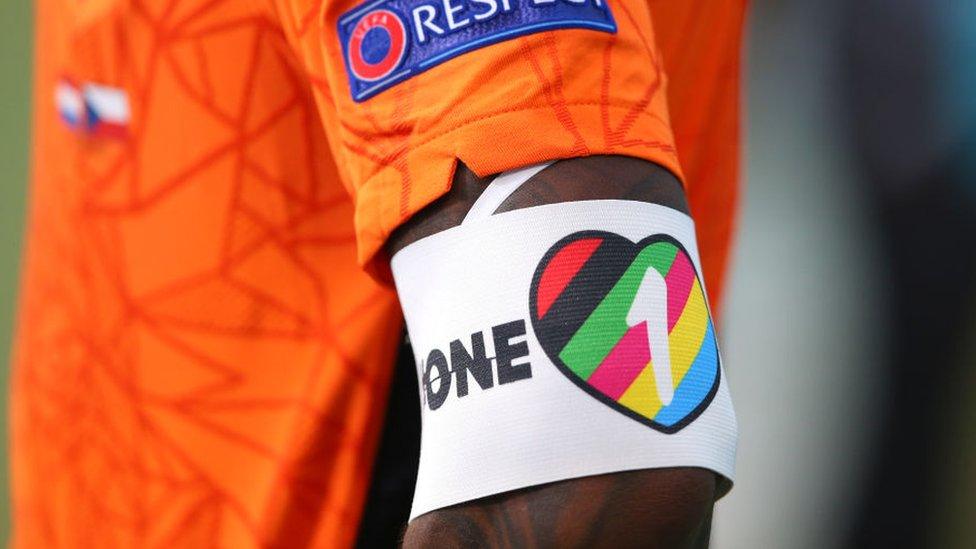
The armband was supposed to worn by several captains at the World Cup including Harry Kane and Gareth Bale
England and Wales, along with several other European nations have decided to not wear armbands at this year's World Cup tournament which were meant to help promote diversity and inclusion.
England and Wales' captains Harry Kane and Gareth Bale had planned to wear the OneLove armbands during matches at this year's competition.
However, it was decided on Monday that they would would no longer be worn after Fifa threatened to automatically give yellow cards to any captain wearing the rainbow armbands.
The news came just hours before England took on Iran in their first match of the tournament.
"Fifa has been very clear that it will impose sporting sanctions if our captains wear the armbands on the field of play," a joint statement from a number of football associations including the English FA said.
"...we can't put our players in a position where they could face sporting sanctions including bookings, so we have asked the captains not to attempt to wear the armbands in FIFA World Cup games.
"We are very frustrated by the Fifa decision, which we believe is unprecedented," the statement read.
"Our players and coaches are disappointed - they are strong supporters of inclusion and will show support in other ways."
What is the OneLove armband?
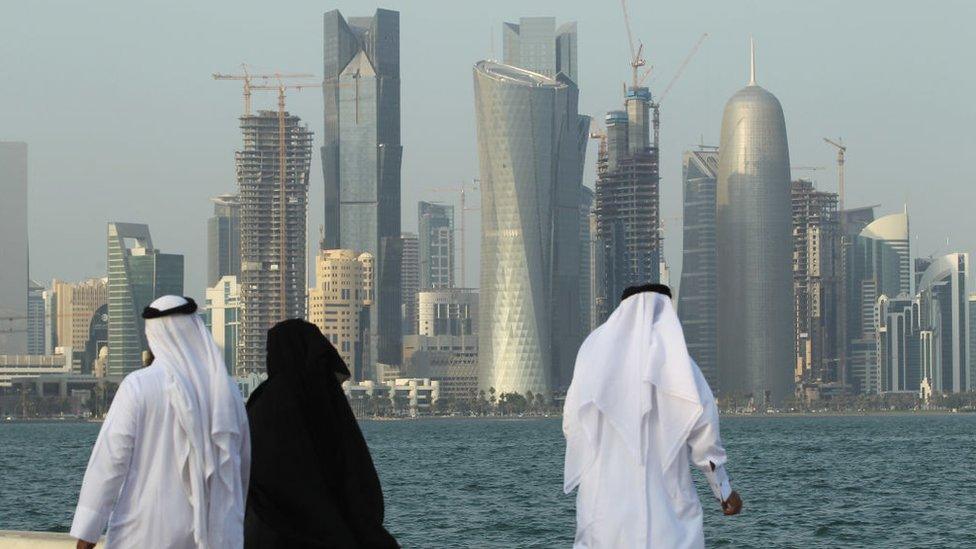
Same-sex relationships are illegal in Qatar
The OneLove campaign was started by the Netherlands ahead of the Euro 2020 football tournament as a message against discrimination.
The armband is meant to show support for the LGBTQ+ community and raise awareness of the discrimination they face.
Same-sex relationships are currently illegal in Qatar, something which lots of people have criticised in the lead up to the World Cup.
Qatar is just one of many countries around the world where same-sex relationships are banned. There are currently almost 70 countries where same-sex relationships remain illegal including:
Afghanistan
Algeria
Bangladesh
Barbados
Egypt
Ethiopia
Ghana
Iran
Kenya
Lebanon
Libya
Malaysia
Morocco
Nigeria
Pakistan
Saudi Arabia
Senegal
Sri Lanka
Yemen
Zimbabwe
Other human rights concerns have also been raised, including the treatment of workers from abroad and women in Qatar.
It was announced in September this year that the captains of 10 European nations - England, Wales, Belgium, Denmark, France, Germany, Norway, Sweden, Switzerland and the Netherlands - would wear a OneLove armband at Nations League games and the 2022 World Cup in Qatar.
However, Monday's announcement means this will no longer be happening.
What has the response to the news been?
World Cup: Why are some people unhappy about Qatar hosting?
Lots of people feel Fifa's decision to threaten players who wear the OneLove armband with a sanction is wrong, including the Football Supporters' Association, an organisation which represents football supporters in England and Wales.
"Today we feel contempt for an organisation that has shown its true values by giving the yellow card to players and the red card to tolerance," it said in a statement.
"Never again should a World Cup be handed out solely on the basis of money and infrastructure.
"No country which falls short on LGBT+ rights, women's rights, workers' rights, or any other universal human right, should be given the honour of hosting a World Cup."
It used to be illegal for two men to be in a same-sex relationship in England and Wales.
Gay and bisexual men could face a maximum sentence of life in prison if they broke the law around homosexuality until the law was changed in 1967.
The decision was also criticised by anti-discrimination campaign group Kick It Out for continuing "to highlight Fifa's failure to address concerns of both human rights groups and the LGBTQ+ community in the build-up to this tournament".
"Players and fans should not have had to bear the burden of Fifa's mistakes and we will continue to support Gareth Southgate, and his team, as they look to explore other ways to support inclusion in football," Kick It Out said in a statement.
What's Fifa's response been?
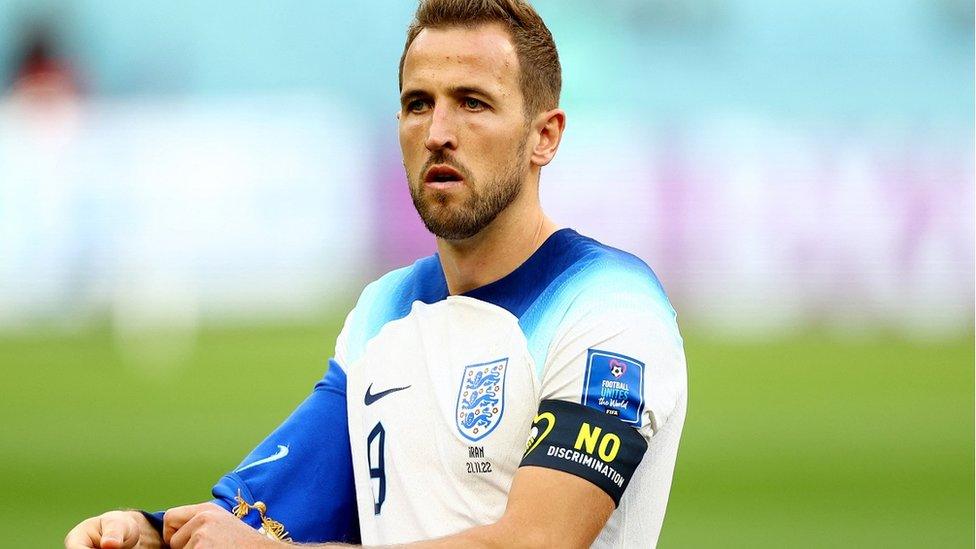
Harry Kane wore Fifa's No Discrimination armband before England's first match against Iran
Fifa announced its "No Discrimination" campaign, which was meant to start from the quarter-finals, has now been brought forward.
It means team captains will now be allowed to wear a No Discrimination armband for the whole tournament.
"FIFA is an inclusive organisation that wants to put football to the benefit of society by supporting good and legitimate causes, but it has to be done within the framework of the competition regulations which are known to everyone," a statement from the organisation said.
- Published20 November 2022
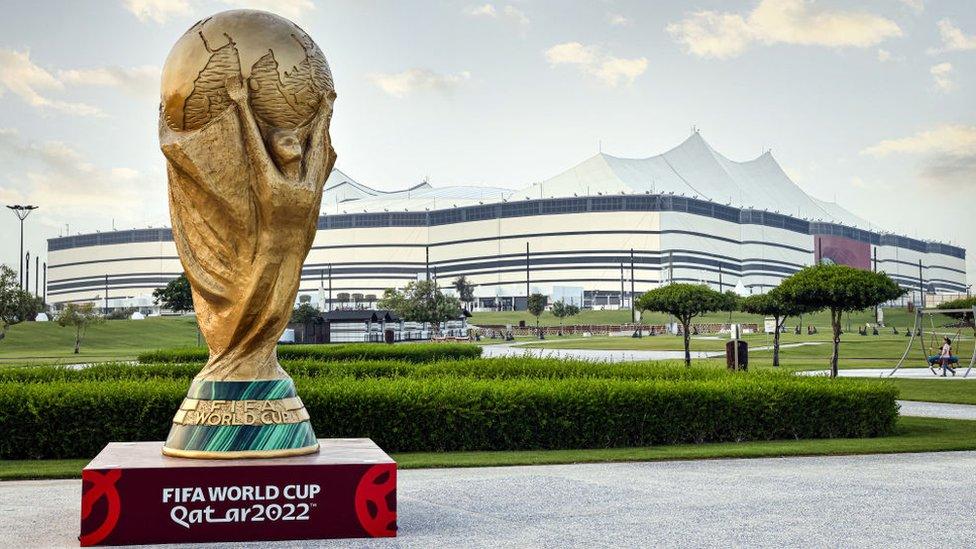
- Published21 November 2022
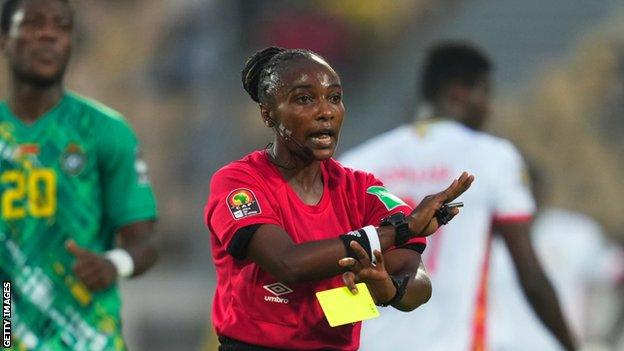
- Published31 March 2022
